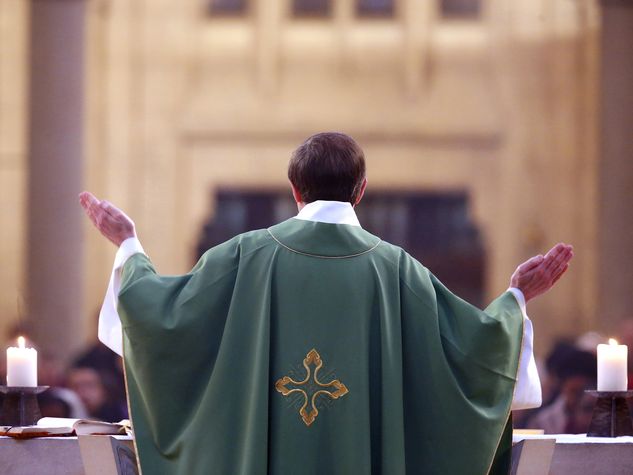Gay men will be allowed to train as priests in Roman Catholic seminaries, so long as they observe celibacy, according to new guidelines announced by the Italian Bishops Conference (CIE).
The decision marks a shift from the view previously held by Pope Francis that gay men should not be admitted to seminaries owing to the risk of them leading a double life.
According to the guidelines, the most important thing for aspiring priests is to show “an orientation towards celibate life”.
While the document permits men with homosexual tendencies to attend seminaries, it explicitly states that individuals who openly display or advocate their homosexuality should not be admitted.
A specific section of the 68-page document addresses candidates with homosexual tendencies, outlining the expectations and procedures for those who either disclose such tendencies upon entering seminaries or discover them during their priestly training.
“The Church, while profoundly respecting the persons in question, cannot admit to the seminary and to Holy Orders those who practice homosexuality, present deeply rooted homosexual tendencies or support the so-called gay culture,” the document read.
The guidelines emphasize that when evaluating homosexual tendencies in aspiring priests, the Church should consider these within the broader context of the individual’s overall personality to achieve a balanced understanding.
The primary goal of priestly formation, according to the document, is to cultivate the ability to embrace celibacy as a gift and live chastely.
The Italian Bishops’ Conference confirmed that the new guidelines, approved by the Vatican, align with the Church’s commitment to celibacy and inclusivity.
Pope Francis, now 88, has consistently advocated for a more welcoming approach within the Roman Catholic Church, including toward LGBTQ individuals, despite official doctrine labeling same-sex acts as intrinsically disordered.
In 2013, early in his papacy, Francis made headlines with his famous remarked that, “If someone is gay and is searching for the Lord and has goodwill, who am I to judge?”


